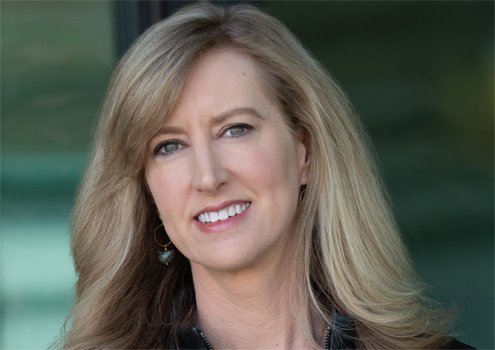Reading time: About 2 minutes
Casey Hibbard says that when she doesn’t feel like writing, she works hard to engineer a mindset shift. Read this interview to learn more….
A corporate storyteller, Casey Hibbard helps businesses sell with the voices of their happy customers. She’s the author of the first book on creating and leveraging customer stories, Stories that Sell: Turn Satisfied Customers into Your Most Powerful Sales & Marketing Asset. Casey has taught hundreds of writers her time-tested practices for interviewing, capturing compelling customer success stories, and managing these projects from start to finish. She’s also the head storyteller and podcast host of Rebuilding My Health.
I was excited to talk to Casey about how she approaches writing.
Q. Roughly how much time do you spend writing every day? I spend about three hours actually writing and the rest organizing information and editing.
Q. What’s a simple activity or habit that makes you a better writer? I find it helps tremendously to write when the information is fresh in my mind. What I’m writing is based off interviews, so creating that crappy first draft (thanks for the tactic, Daphne!) quickly after an interview gives me a lot of momentum.
Q. What interferes with your writing? My business and writing rely on meetings/calls, but they can break up much-needed blocks of focused writing time. It’s hard to reclaim that focus after an interruption. I try to schedule calls around big open blocks for writing.
Q. How do you persuade yourself to sit down to write on days when you really, really DON’T feel like doing it? We all hit times when we’re not excited about the task at hand. When that happens, I engineer a mindset shift. I go for a walk and actively mull over the story. What can I find in this story that will excite me regardless of the subject matter? Maybe it’s a routine tech story, but usually, there’s an angle, anecdote, or an impressive result that will bring life to it. I usually get inspiration on walks and am excited to write when I return.
Q. Is there a particular motto or saying that you’ve found helpful for writing? Done is better than perfect. I could endlessly edit anything I write, but at some point, I have to call it good.
Q. Which stage of the writing process do you enjoy the most: researching, writing or editing/rewriting and why? Writing! I love the creative aspect of turning raw information and ideas into words that will move or educate a reader.
Q. What’s the best book you’ve read (either fiction or non) in the last five years? Tough one! I really loved All the Light We Cannot See, by Anthony Doerr.
Q. What book are you reading right now? Madeline Miller’s Circe for a book club.
Q. What do you think is the biggest misperception that new writers have about the act of writing? The biggest misperception I see is not realizing that they’re writing for a specific audience – whether that’s in fiction, non-fiction, business, academia, etc. (unless you’re purely writing for yourself). Whatever we’re writing about is often very personal and so close to us. It’s hard but essential to step back and say, what about this will be interesting and relevant to the reader?


